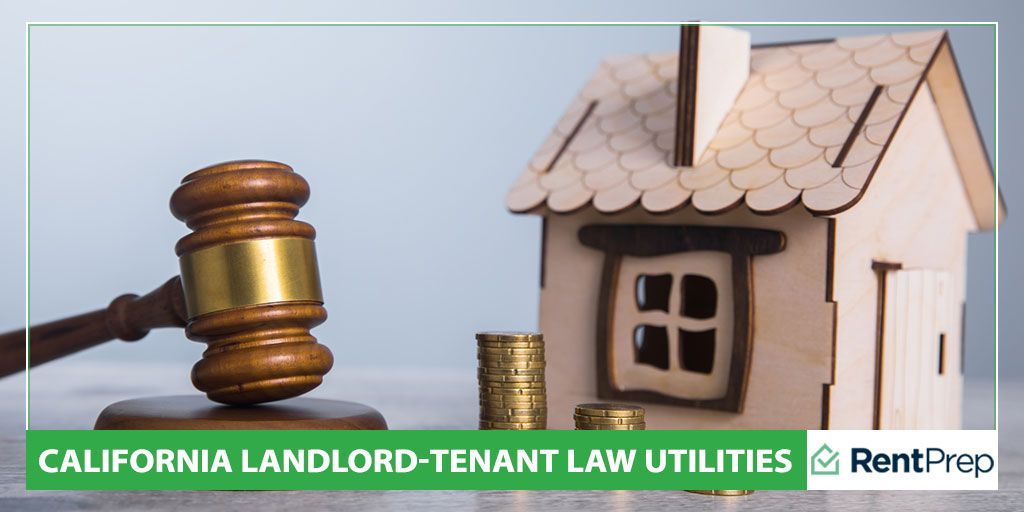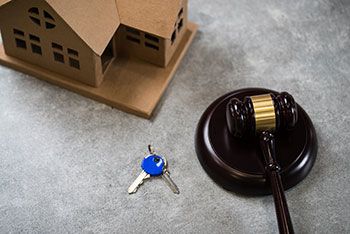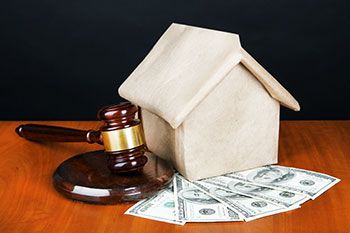
Navigating utility responsibilities in rental agreements is essential for landlords and California tenants. Understanding who bears the cost can prevent legal issues and ensure a smooth tenancy.
Key Takeaways:
- California landlord-tenant laws do not mandate landlords to cover utility costs but require clarity in lease agreements.
- Landlords must ensure tenants can access utilities and cannot charge more than the actual utility cost.
- Communication and precise documentation about utility responsibilities are crucial for a successful landlord-tenant relationship.
Are landlords in California required to pay for their tenants’ utilities?
In California, landlords are not legally obligated to pay their tenants’ utilities. However, the lease agreement should explicitly state who is responsible for utility payments. Landlords must ensure tenants have uninterrupted access to utilities and can only charge them the actual cost of the utilities consumed.
There are specific rules about handling utility payments for tenants, and breaking those rules could lead to significant fines. Don’t risk these avoidable costs, lawsuits, or disagreements with your tenants —take some time to understand utility laws in California.
From water bills to gas bills, it’s up to you as the landlord to ensure both parties in a lease agreement understand who is responsible for covering these costs. Today, learn about the applicable laws and how to set yourself up for success when dealing with utility bills and tenant rights.
Table Of Contents: Utility Laws In California
It’s your responsibility as a landlord to ensure your tenants have access to utilities, and you cannot turn utilities off just because a tenant is late on rent. What else must you know about managing utilities and landlord-tenant law in California? Follow our guide today:
- What Is Landlord-Tenant Law?
- Deep Dive Into California Landlord-Tenant Law And Utilities
- FAQs: Utility Laws In California
- Can a landlord charge for utilities in California?
- Who is responsible for unpaid utility bills in California?
- What appliances must a landlord provide in California?
- Can landlords withhold the security deposit to cover unpaid utility bills?
- Who pays electricity between tenancies?
- Can landlords restrict water usage in California?
- Utility Bills In California: A Landlord-Tenant Affair
What Is Landlord-Tenant Law?

Experienced landlords will already be familiar with landlord-tenant law. However, landlords may still need to learn what these laws cover early in their careers.
Landlord-tenant law dictates the rights and responsibilities of both tenants and landlords. Each state has its own landlord-tenant laws, and some cities may have additional rules that apply to rental properties.
Landlords and tenants are expected to follow the obligations of these laws in addition to anything agreed upon in the lease. These laws cover topics ranging from security deposits to maintenance rules, and all landlords should be familiar with their state’s regulations before they begin renting to avoid issues.
Deep Dive Into California Landlord-Tenant Law And Utilities
What exactly does landlord-tenant law in California say about utilities?
In California, the utilities that landlords are required to pay can vary based on the rental agreement. Typically, landlords may cover water, trash, and sometimes gas, but it ultimately depends on the terms outlined in your lease. It’s crucial to review your lease agreement to understand which utilities are the landlord’s responsibility.
The rules do not dictate who must pay for water and other services but ensure that tenants have certain rights. This is because the tenant is considered both a consumer and a customer. This means they are subject to certain rights under California law.
Under California landlord-tenant law regarding utilities, clear guidelines stipulate distributing utility payment responsibilities between landlords and tenants. These laws ensure access to essential services while detailing rights and obligations related to utility payments and services in rental agreements.
There are four relevant factors that landlords must ensure are in place:
- Tenants have a right to pay fair prices for their utilities.
- Tenants have a right to know how much they pay for utilities and how subdivisions exist, if applicable.
- Tenants have a right to get utilities even if their landlord doesn’t pay the bills on time.
- Tenants with medical conditions that require at-home medical equipment have a right to a reduced utility cost.
In the following sections, learn more specifics about each of these rights and how you should work to uphold them as a landlord.
Right To Fair Price
Tenants have a right to pay fair prices for their utilities. Landlords must charge the same amount to tenants paying directly for utilities. They cannot charge a premium on this amount to create additional profit. They may charge a small fee besides their administrative services, which must be reasonable.
When you set up your management and billing structure, ensure that you only charge tenants for what they use if you are billing them directly. Do not collect estimated amounts –collect only what you covered.
In cases where landlords incur administrative costs for managing utilities, California allows for a reasonable utility reimbursement fee. This fee should be justifiable and not exceed the administrative expenses related to utility billing and collection.
Right To Know How Much You’re Paying

California tenants can receive detailed utility bills if they are directly responsible for such payments. If a landlord fails to provide this information, they may be violating tenant rights to transparency and access to billing information, as stipulated by state laws.
Landlords must let tenants know how much they pay for utilities each month. This is a critical point whenever tenants share utility meters. Before signing the lease agreement, they must be informed how the meters are measured and divided between units to ensure they’re content with the setup. Include specific percentages when possible.
Whenever you bill a tenant for utilities, you should include the meter readings from the beginning and end of the payment period. Then, let the tenant know the current service rate and how much they owe. This detailed information is vital for all tenants to know precisely what they are charged for.
If you are in an owner-occupied situation, you still need to inform your tenant about utility costs and any associated expectations, especially if you expect them to pay any portion of these bills. How you will go about sharing responsibility for these costs should be clearly outlined in the lease agreement.
A landlord in California has the right to put a utility bill in a tenant’s name only if agreed upon in the lease. This ensures tenants are fully aware of their responsibilities towards utility payments and protects them from unexpected liabilities.
Right To Protection From Nonpayment
When you decide to keep the utility bill in your name and invoice your tenant for their utility use, they are considered a sub-metered tenant.
When a utility bill is not in the tenant’s name, they are generally not responsible for the payment. California law protects tenants from being held accountable for utilities not legally attributed to them, ensuring fair treatment and transparency in utility billing practices.
Suppose you do not pay the bill on time. In that case, the tenant canprotect themselves from losing service by contacting the appropriate utility company and opening their own account. They can then pay the bill directly to keep or restore their service.
If your account continues to be past due, the tenant will not be held responsible for the late fees. Instead, the utility company will hold you responsible since the bill is in your name.
While nonpayment of utilities directly attributed to a tenant can lead to severe consequences, eviction solely for unpaid utilities is generally not immediate. In California, tenants must be given notice and an opportunity to remedy the situation, in line with eviction laws prioritizing fair treatment and due process.
Right To Apply For Medical Assistance
Utility companies are legally required to offer some medical benefits to those suffering from conditions requiring at-home medical equipment. Tenants must have valid documents and information to show they need life support care at home.
If your tenant needs this type of assistance, they will likely need to open their own account with the utility company to apply for these reduced rates. They may need to pay the bill directly since they are the affected individual.
Even if you typically have tenants pay their utilities through you, it’s best to allow this exception to ensure the tenant gets the necessary medical assistance they’re entitled to.
Documentation = Success
Do your lease agreements already include utility specifications, or do you need to update your documents? Keeping various forms on hand makes it efficient and easy to use accurate documentation for all parts of the rental process.
However, we know developing these documents from scratch can be difficult, so we’ve put together the Landlord Form Bundle Mega Pack. This complete reference bank provides forms that can be used as-is or modified to fit your specific needs.
Get started with free access to the mega pack today!
FAQs: Utility Laws In California
Find out the most frequently asked questions about utility laws in California.
Can a landlord charge for utilities in California?
In California, whether a tenant is responsible for the water bill depends on the lease agreement. If the lease specifies that tenants cover utility bills, you may legally be required to pay the water bill. However, the landlord cannot decide to make you pay the water bill without it being agreed upon in your lease.
Tenants can negotiate on this point during the lease signing process, but most California landlords prefer this practice.
There are no specific limits on how much can be charged for utilities, but landlords are not permitted to charge a premium. They should charge tenants the exact amount they are paying for the unit’s utilities. They may, however, add a small administration fee for their work and liability in covering these bills directly.
Tenants typically compare rates to comparable units in the area to be sure that landlords are not overcharging them for utilities. They can report this to the appropriate municipality and authorities if they believe they are being overcharged.
Landlords in California can charge tenants for common area electricity and other utilities if this is clearly outlined in the lease agreement. However, any charges must reflect actual usage and cannot exceed the cost incurred by the landlord, ensuring fairness and transparency in utility billing.
Landlords should always ensure they are not charging more than what they pay for utilities.
Who is responsible for unpaid utility bills in California?
Legally, unpaid utility bills are the responsibility of whoever’s name is on the bills. If your tenants pay you directly for utilities and you pay the bills, you would be responsible for covering these charges. While you could pursue the tenant to recoup these costs, most landlords pocket the loss and move on in this situation.
In California, landlords may be held responsible for unpaid utility bills, especially if the utilities are in their name or if it’s implied within the lease agreement that they cover such costs. This emphasizes the importance of clear agreements and understanding local regulations concerning utility payments.
This situation is particularly interesting in California because the law isn’t clear on who is responsible for unpaid water bills in rental cases if the bill was in the tenant’s name. For this reason, landlords working in the state often include water as part of the rent. They can ensure the bill is paid promptly and work on collecting rent from the tenant separately.
Municipal authorities in California have even been known to put liens on rental properties when a tenant stops paying or moves out without paying bills. If the landlord refuses to pay, the municipality may continue to pursue repayment through the property and its value.
Ultimately, landlords could be held responsible for unpaid water bills in California, so experienced investors prefer to include water as part of the rent. Water differs from gas and electricity because water is typically city-owned in California.
Ensuring that you choose tenants who will pay their bills and keep up with their legal responsibilities becomes very important in these cases. Update your tenant screening practices so you only rent to reliable, trustworthy tenants.
What appliances must a landlord provide in California?
Landlords are not legally required to provide appliances in rental properties in California. Most landlords, however, choose to provide washers, dryers, dishwashers, or refrigerators to attract more tenant applications. These appliances are something that tenants often prioritize when selecting a unit, so it’s a benefit to landlords to provide them.
Can landlords withhold the security deposit to cover unpaid utility bills?
In California, it is not legal for landlords to withhold any of the security deposit to cover utility bills. You can only withhold funds from the security deposit for the following reasons:
- Cost of repairing damages beyond normal wear and tear
- Cost of cleaning the unit to return it to the state it was rented out in
- Unpaid rent, including any rent owed when a tenant moves out without notice
While the tenant should have paid their utility bills, this cost cannot be directly deducted from the deposit. This is another reason that units often include water and other utilities under the cost of rent –it’s easier for them to recoup unpaid costs. However, you must never charge more for utilities than what is paid, so consider this when setting your rent.
Who pays electricity between tenancies?
If you are between tenancies, you, as the landlord, are responsible for paying electricity and other utility bills regardless of who usually pays them. It is possible to turn off some utilities, but most landlords find that the time needed to do this is not worth the potential savings. Most of the time, the bills will be minimal, provided everything in the unit has been properly turned off.
Can landlords restrict water usage in California?
Generally, landlords cannot restrict how much water a tenant uses. In California, however, there are exceptional cases when landlords may ask tenants to use less water.
Whenever a severe drought hits California and affects the overall availability of water, the governor may send out an official declaration to reduce water use. In this case, landlords and property managers will need to communicate these new restrictions to landlords and recommend changes that need to be made.
If you can, you should audit how much each unit uses. Let each occupant know if they need to reduce consumption to meet the state standards or if they are already within the legal limits. However, landlords cannot restrict use if there is no directive in place.
Utility Bills In California: A Landlord-Tenant Affair
Most landlords in California choose to include utility costs as part of monthly rent, but how you manage your properties is a personal choice. No matter which direction you take things, your management style must align with landlord-tenant laws on utilities in California.
Don’t forget to include all of the following in your lease agreements and utility documentation to ensure you avoid lawsuits and fines:
- Who is responsible for paying utilities and how those payments must be made
- How much will be charged for utilities
- How utilities are divided if units share the same meters
- Who to contact with any questions or concerns
- What will happen if a tenant doesn’t pay their utility bills before moving out
By clearly outlining this in your lease agreement, both parties will be on the same page from day one. This can help prevent confusion and set you up for clear communication regarding utilities throughout your lease.

